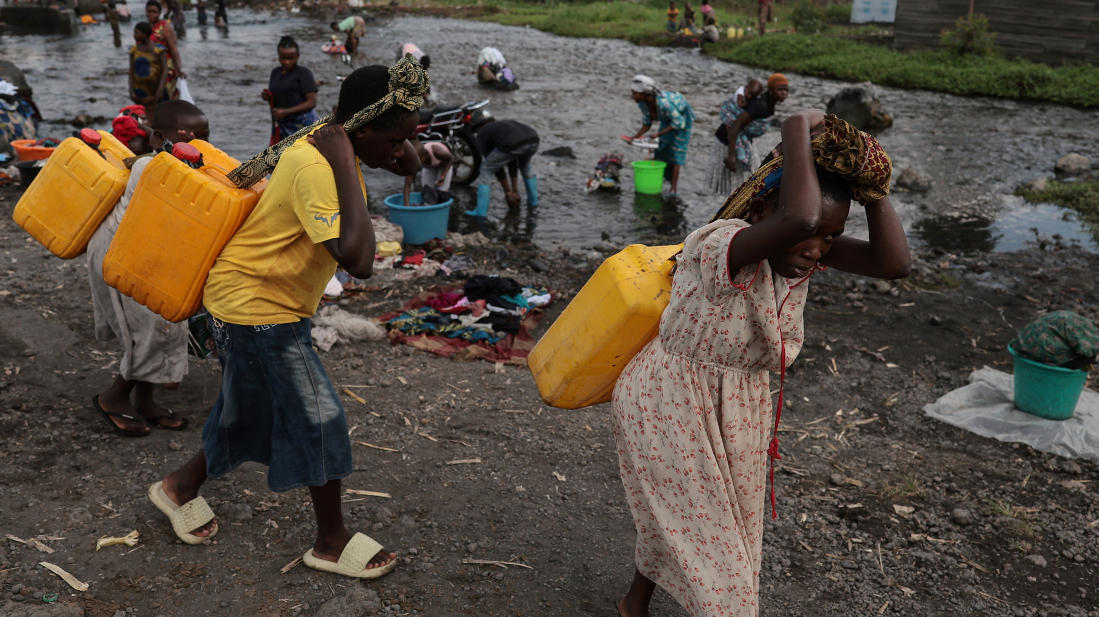Cuba fuel crisis turns into waste emergency as trash piles up in Havana amid energy blockade
Cuba’s fuel crisis has turned into a waste crisis, with garbage piling up on most street corners in Havana as many collection trucks lack enough pet...

A quarter of the world’s population, 2.1 billion people, still lack access to safely managed drinking water, according to a new WHO and UNICEF report marking World Water Week 2025.
A joint report by the World Health Organization (WHO) and the United Nations Children’s Fund (UNICEF) has exposed stark and persistent global inequalities in access to drinking water, sanitation, and hygiene (WASH), with rural areas, low-income countries, and marginalised communities most affected.
The report, titled Progress on Household Drinking Water and Sanitation 2000–2024: special focus on inequalities, was released on Monday during World Water Week. It finds that despite some progress since 2015, billions remain at risk of disease and social exclusion due to inadequate WASH access.
Among the findings: 2.1 billion people still lack safely managed drinking water. A further 3.4 billion people do not have access to safely managed sanitation, including 354 million who practise open defecation. Meanwhile, 1.7 billion people lack basic hygiene services at home.
Those living in the world’s least developed countries are more than twice as likely to lack basic water and sanitation compared to other nations, and over three times more likely to lack hygiene services. In fragile settings, safely managed drinking water coverage is 38 percentage points lower than in more stable environments.
Disparities in rural and urban access
While rural access to water and hygiene has improved – with safely managed drinking water rising from 50% in 2015 to 60% in 2024 – urban areas have seen stagnation. Still, urban dwellers remain better served overall.
Burden on women and girls
Data from 70 countries show that women and girls continue to carry the burden of water collection, particularly in sub-Saharan Africa and South Asia, where many spend more than 30 minutes daily fetching water. Girls aged 15 to 19 are also less likely than adult women to engage in school or work during menstruation due to a lack of adequate sanitary facilities.
UNICEF’s Director of WASH, Cecilia Scharp, warned, “These inequalities are especially stark for girls, who often bear the burden of water collection and face additional barriers during menstruation.”
Dr Ruediger Krech, acting director of WHO’s Environment, Climate Change and Health division, said: “Water, sanitation and hygiene are not privileges, they are basic human rights. We must accelerate action, especially for the most marginalised communities, if we are to keep our promise to reach the Sustainable Development Goals.”
Looking ahead to 2030
With only five years remaining to meet the UN Sustainable Development Goals (SDGs), including the target of universal access to WASH by 2030, both agencies warned that the current pace is insufficient.
They urged for more to be done to ensure that water and sanitation reach those who need it most, especially young children.
U.S. Ambassador to NATO Matthew Whitaker said China has the power to bring an end to Russia’s war in Ukraine, arguing that Beijing is enabling Moscow’s military campaign.
Austria’s Janine Flock won the gold medal in the women’s skeleton event at the Milano-Cortina 2026 Winter Olympics on Saturday.
Iran’s Supreme National Security Council Secretary Ali Larijani said the United States could evaluate its own interests separately from those of Israel in ongoing negotiations between Tehran and Washington.
U.S. Secretary of State Marco Rubio on Sunday (15 February) called it “troubling” a report by five European allies blaming Russia for killing late Kremlin critic Alexei Navalny using a toxin from poison dart frogs.
Israel’s National Guard is preparing to deploy drones capable of firing tear gas at Palestinians in the occupied West Bank, including East Jerusalem, as part of security preparations ahead of the Muslim holy month of Ramadan, Israeli Channel 12 reported on Saturday.
Representatives of Ukraine, Russia and the United States are set to meet in Geneva for a third round of trilateral negotiations aimed at ending the nearly four-year war, even as both sides intensify military pressure on the ground.
The Prime Minister, Mark Carney, announced on 16 February that the Honourable Janice Charette has been appointed as the next Chief Trade Negotiator to the United States.
Cuba’s fuel crisis has turned into a waste crisis, with garbage piling up on most street corners in Havana as many collection trucks lack enough petrol to operate.
Day 10 of the Milano Cortina 2026 Winter Olympics delivered high-stakes semifinals, dramatic finishes and classic podium moments across Milan and the Italian Alps. Photographers captured split seconds of symmetry before puck drops, explosive turns on the ice and triumphant celebrations.
The mother and widow of Russian opposition leader Alexei Navalny marked the second anniversary of his death on Monday, as European allies released an assessment saying he was poisoned, adding that the Russian state had the means, motive and opportunity to deploy the lethal toxin.
You can download the AnewZ application from Play Store and the App Store.

What is your opinion on this topic?
Leave the first comment